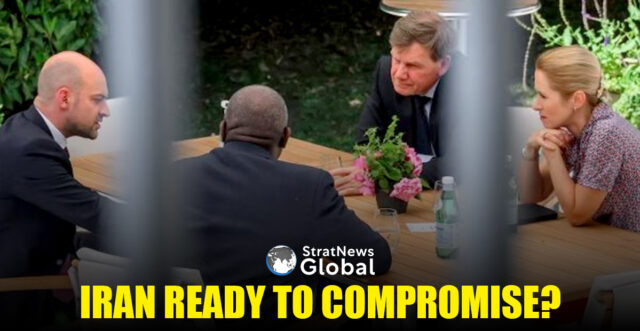France, Britain, and Germany will meet with Iranian officials on Friday for their first direct talks since U.S. and Israeli attacks on Iranian nuclear facilities in June, seeking to assess Tehran’s readiness to reach a compromise for a nuclear deal and avoid looming sanctions, according to diplomats.
The three European countries, along with China and Russia, are the remaining parties to a 2015 deal – from which the U.S. withdrew in 2018 – that lifted sanctions on Iran in return for restrictions on its nuclear programme.
Friday’s talks between senior diplomats from the so-called E3 group and Iran’s negotiating team will be held in Istanbul.
The United States held five rounds of talks with Iran prior to its airstrikes in June, which U.S. President Donald Trump, said had “obliterated” a programme that Washington and its ally Israel say is aimed at acquiring a nuclear bomb. Iran denies seeking a nuclear weapon.
European and Iranian diplomats say there is no prospect of Iran re-engaging with the U.S. at the negotiating table for now.
But the Europeans say negotiations must be revived due to a halt in inspections of nuclear facilities by the International Atomic Energy Agency (IAEA) and as an October 18 deadline for the expiration of the 2015 deal draws closer.
They also want answers over the location of 400 kg (880 pounds) of near-weapons grade highly enriched uranium, whose whereabouts have not been known since last month’s strikes.
“We are determined to do everything to reach a diplomatic solution,” German Foreign Minister Johann Wadephul told a press conference in Paris on July 18.
Snapback Or Extension?
Under the terms of the U.N. Security Council resolution enshrining the 2015 deal, U.N. sanctions could be reimposed before the agreement expires – a process that would take about 30 days.
The E3, who do not want to lose leverage by letting the deal expire, have warned that unless there is a new nuclear accord they will launch the “snapback mechanism”, which would restore all previous U.N. sanctions on Iran, including on the oil, banking and defence sectors.
With Russia – an ally of Iran – taking over the Security Council presidency in October, the three European countries have signalled that the latest window to reactivate the sanctions would be the end of August.
Three European, one regional and an Iranian diplomat said the meeting in Istanbul would focus primarily on the issue of the snapback mechanism.
They said the E3 would float the possibility to Iran of extending the snapback mechanism by up to six months.
In return, Iran would need to make commitments on key issues, including eventual talks with Washington, full cooperation with the IAEA, and accounting for its stockpile of highly enriched uranium.
Speaking to reporters at the U.N. on Wednesday, Iranian Deputy Foreign Minister Kazem Gharibabadi, who will be in Istanbul, said Tehran had agreed to allow a technical team from the IAEA to visit in the coming weeks.
He warned that a triggering of the snapback mechanism would be met with a strong response from Tehran. It has previously threatened to leave the Non-Proliferation Treaty (NPT) over the issue.
Gharibabadi added that he had heard about the possibility of an extension.
“That’s very premature now to discuss the issue of the extension. We have almost about three months actually, till the deadline of 18th of October,” he said.
Sanctions To Be Reimposed?
A Trump administration official, speaking on condition of anonymity, said the U.S. was “coordinated” with the E3 when asked whether Washington was discussing the reimposition of sanctions with them, but declined to elaborate.
Israel’s Strategic Affairs Minister Ron Dermer was in Paris on Thursday and due to meet French officials for talks on various subjects, including Iran, four sources said.
Israel launched the attacks on Iran saying it wanted to remove any chance of its arch-foe developing nuclear weapons.
(With inputs from Reuters)





